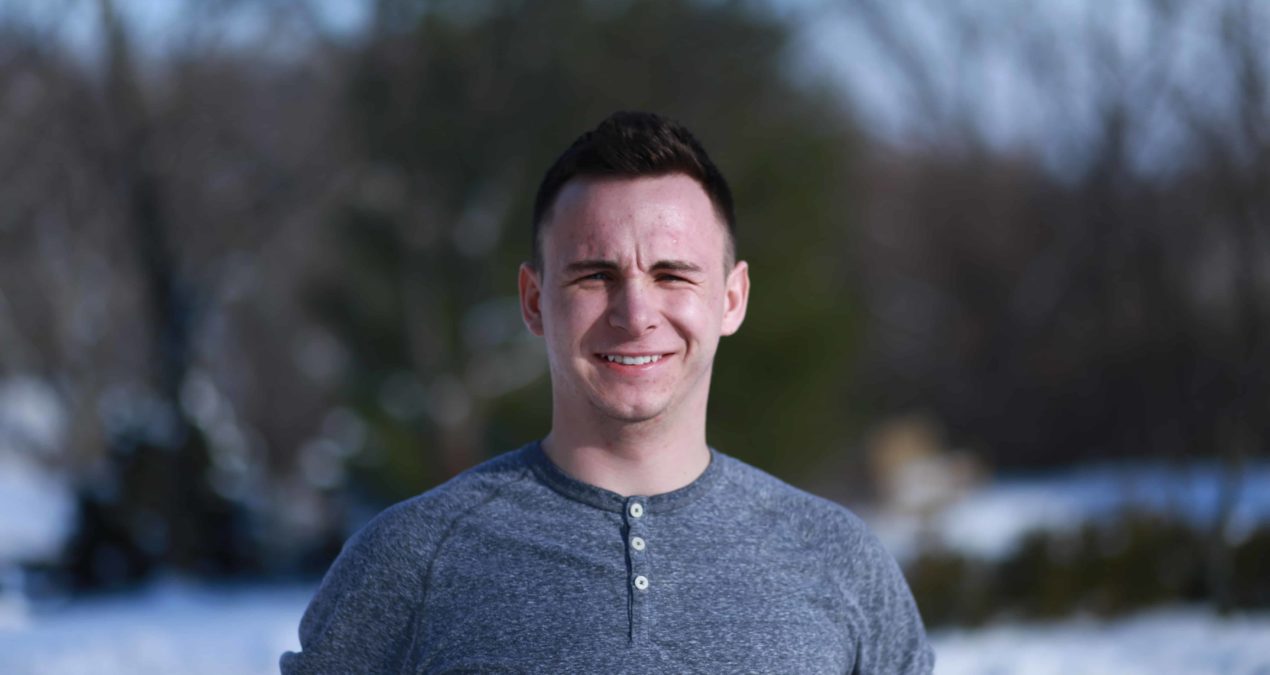By Dylan Weinand
Forum Editor
My journey with the practice of mindfulness began last November. Mindfulness is the intentional practice of paying attention to the present moment, without judgement. We are present to what is happening in an experience without judging the experience.
With mindfulness, we are aware of the present moment. We notice our surroundings, the sensations in the body and our passing thoughts and emotions. Importantly, we do not judge what is happening, we simply experience it.
Fed up with constantly feeling anxious and stressed, I decided to begin a mindfulness meditation practice. I downloaded Headspace, an excellent app filled with guided meditations that I use daily. In the practice of mindfulness meditation, one sits comfortably with their eyes closed, gently focusing on the breath.
During the first week or so of meditating, I could barely remain still. Sitting with my eyes closed and focusing on my breath felt like a colossal waste of time. My mind raced with random thoughts, feelings, ideas, conversations and judgements about all of it. Yet, in mindfulness meditation and the general practice of mindfulness, we do not try to stop all the commotion in our minds. Instead, we simply notice the commotion.
Gradually, my mind began to slow down. I could sit in meditation and not have my thoughts and feeling run the show. I could gently notice my thoughts and feelings and let them pass.
With the practice of mindfulness, the intensity of my feelings of anxiousness began declining, as did my judging, negative self-talk and restlessness. Here are some ways mindfulness has helped me live a richer life and I believe can positively impact your life, as well.
Mindfulness teaches us to let go of our judgements of our experience. Negative self-talk is disempowering and makes us victims. “I’m just an unorganized person’’ excuses me of organizing my resume. Mindfulness allows us to notice and reflect. Effective questions like, “What could I have done differently in preparing for my exam?’’ and ‘’what can I do to eat healthier in the dining hall?’’ materialize in our minds. Solutions to our challenges emerge from simply being aware of how we feel.
Behaving like a Tibetan monk can be difficult when it feels like an avalanche of essays and exams are smothering you. Mindfulness teaches us how to simply acknowledge whatever it is we feel. Instead of identifying ourselves with an uncomfortable feeling (i.e. ‘’I’m an anxious person’’), we make a simple note: “I feel anxious.” Acknowledging this feeling enables us to move forward and take action on the tasks we need to get done.
Mindfulness allows us to be more present. The current moment is all we have. For a while, I was the person who scrolled through twitter and checked my text messages during meals with friends.
Mindfulness has taught me how to become more present and aware to my immediate experience. By simply being aware of our surroundings during meals and other social situations, relationships and dialogue become richer . We are present to the people around us. . We engage more fully. Mindfulness lets us experience life more abundantly.
Of course, beginning a meditation practice doesn’t translate to a life of constant bliss. We are human beings. Life can be both wonderful and extremely difficult. I still have days where feelings of anxiety get the best of me.
Denison challenges us. Many students have experienced late nights in the library, preparing for an exam or writing an essay. The majority of students are involved in multiple campus organizations and or holdan on campus job. Varsity student-athletes have commitments to both their academia and their team. In the midst of these responbilities, we all search to discover ourselves. Often, are fast paced lives give us little time to reflect.
Slowing down is empowering. It allows us to regain our understanding of purpose and mission. Making time for ourselves leads to more meaningful relationships with others. Theseexcellent improvements in our daily lives can come from setting aside ten to twenty minutes a day to meditate.
The purpose of mindfulness is to let us be present in our lives. While life can be painful, we don’t have to live in pain. We will make mistakes, but with mindfulness, we don’t punish ourselves. We simply return to the present.
Mindfulness enables us experience life more fully. Without living in the stories of our past, the projections of our future and the judgements of it all, we can experience life with more confidence, joy and gratitude. Who doesn’t want that?

